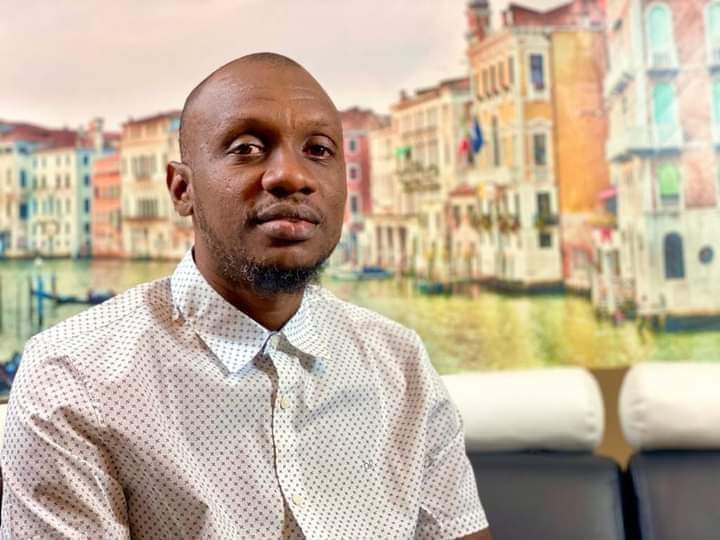Allegations of torture, disappearances and mass graves are casting a long shadow over Sierra Leone’s security forces and prisons, with families and rights defenders accusing authorities of systematically silencing dissent during President Julius Maada Bio’s six years in power.
The latest claims came from Ismael Bah, known as “Rappish,” the elder brother of rapper Laj, who recently broke his silence on his ordeal inside the police-run “Benghazi” detention centre, which former detainees describe as the country’s most notorious site of torture.
Speaking on Wi Yard Online TV, Bah said he was beaten, isolated and threatened during two days in Benghazi before being transferred to Freetown’s Pademba Road Correctional Center following intervention by the U.S. Embassy. “Inside Pademba Road prison there is a mass grave,” Bah alleged, referring to secret burials of prisoners killed during unrest in April 2020.
That incident remains one of the darkest chapters of recent years. What authorities described as a “prison break” at Pademba Road in April 2020 left scores, possibly hundreds, of inmates dead after security forces opened fire. Rights groups and witnesses say bodies were removed in trucks and buried in undisclosed mass graves on the outskirts of Freetown. The government has never confirmed the number of casualties.
Former detainees and families of prisoners maintain that the killings targeted not only rioters but also political detainees and critics of the Bio administration. “Many of our relatives went in and never came out. We are still searching for answers,” said a relative of one missing prisoner, who declined to be named for fear of reprisal.
The allegations extend beyond Pademba. Human rights monitors and opposition figures cite a series of violent crackdowns under Bio’s rule – in Tombo, Tonkoh Limba, Lunsar, Makeni and Freetown – where security forces opened fire on protesters, leaving dozens dead.
Families and civil society groups say hundreds of young people have disappeared during day and nighttime arrests since 2018. Many were protesting rising economic hardship, unemployment and alleged corruption. Relatives believe some detainees were taken to Benghazi and other unofficial holding centres where torture and extrajudicial killings are said to occur.
“Benghazi is the hub of torture in Sierra Leone,” said a former inmate who asked not to be named. “Beatings, electric shocks, suffocation – this is what people go through before they even see a court.”
Activists say at least dozens of detainees remain unaccounted for, even after the government recently released 37 political prisoners. Opposition politicians argue that the silence surrounding missing names from the Tripartite Committee’s recommended release list only fuels suspicions that some detainees were killed in custody.
Reports of clandestine mass graves persist, particularly in the Western Rural District and around the capital. Families say they have been denied the right to know the fate of their loved ones. “We want answers, not excuses,” said a mother from Makeni whose son was arrested in 2020 and never seen again.
International watchdogs have repeatedly raised alarms about Sierra Leone’s human rights record. Amnesty International has urged the government to investigate alleged extrajudicial killings and excessive use of force against protesters. Human Rights Watch has warned that torture and arbitrary detention remain entrenched in the country’s security apparatus.
The United Nations Human Rights Office has also called for accountability in relation to the Pademba Road prison killings, reminding Sierra Leone of its obligations under the International Covenant on Civil and Political Rights.
“The reports of mass graves and torture are deeply concerning,” a UN human rights official told Reuters on condition of anonymity. “The government must ensure impartial investigations, prosecute perpetrators, and guarantee that such abuses never happen again.”
Despite these calls, accountability has been elusive. No senior security officials have been prosecuted for abuses during crackdowns or for the Pademba massacre. Critics say impunity is becoming entrenched.
“The government must open credible investigations into these allegations,” said a Freetown-based lawyer. “Mass graves, torture, disappearances – these are not rumours. They strike at the heart of Sierra Leone’s fragile democracy.”
For many Sierra Leoneans, the stories evoke memories of the 1990s civil war, when mass killings, impunity and fear defined daily life. Nearly two decades after peace was declared, the return of such allegations has left citizens questioning whether hard-won stability is eroding.
“The way a government treats its prisoners and protesters is a measure of its respect for human rights,” said a civil society activist. “If these mass graves exist, they are not only burying victims – they are burying trust in our institutions.”
The Sierra Leonean government has not responded to repeated requests for comment. Reuters could not independently verify the allegations.
Still, as voices like Bah’s continue to emerge and international pressure mounts, calls are growing louder for transparency, accountability and justice for those whose fates remain hidden beneath the soil.
By Joseph Turay, Public Review Newspaper, Freetown



